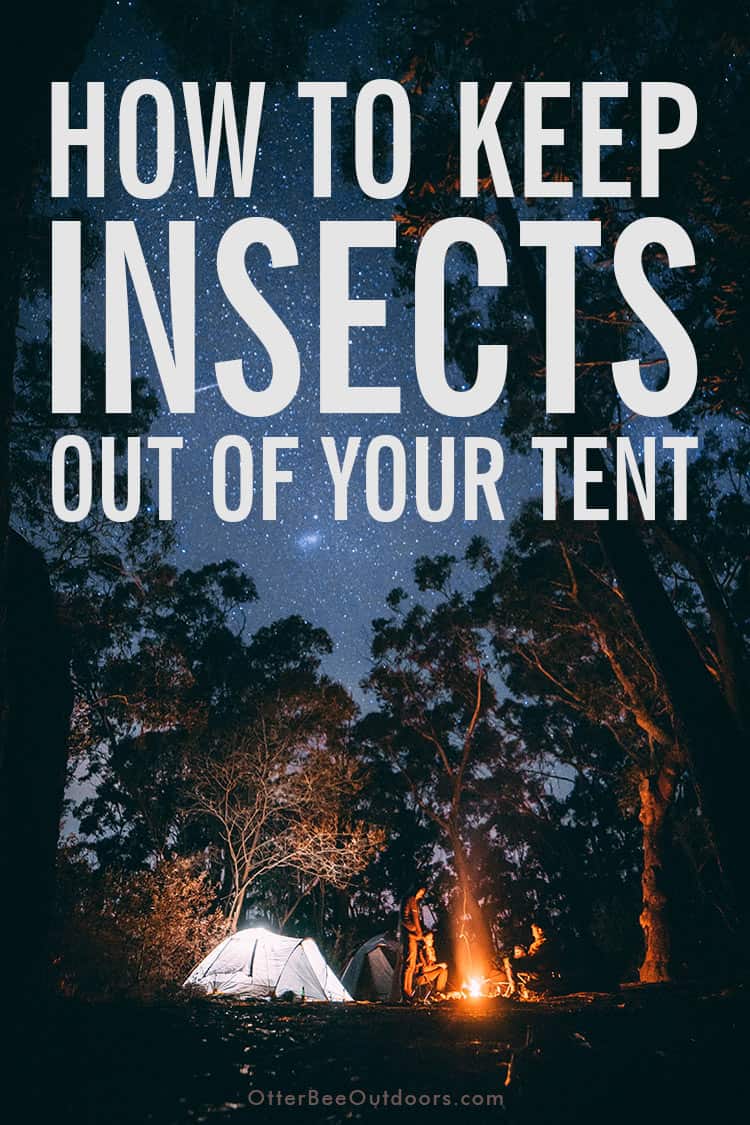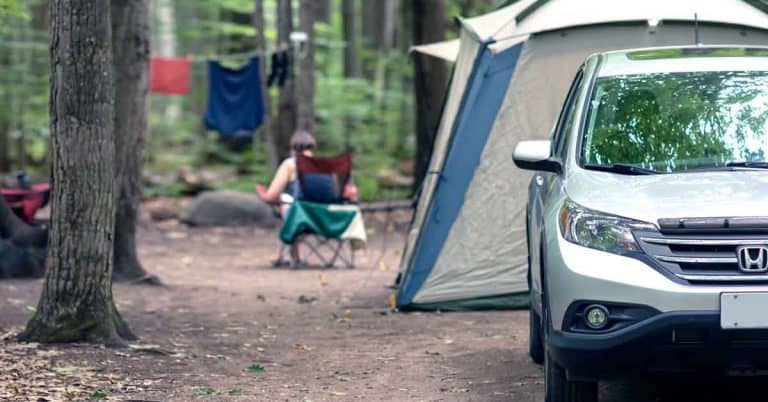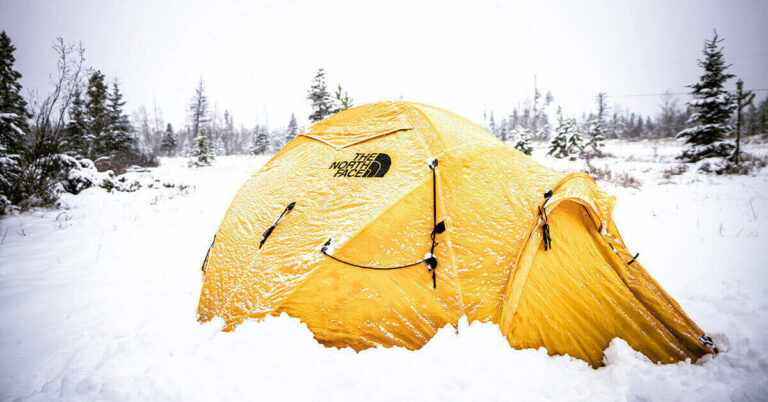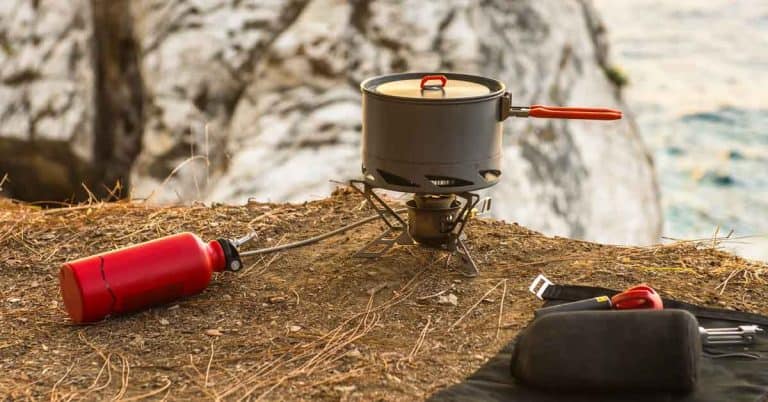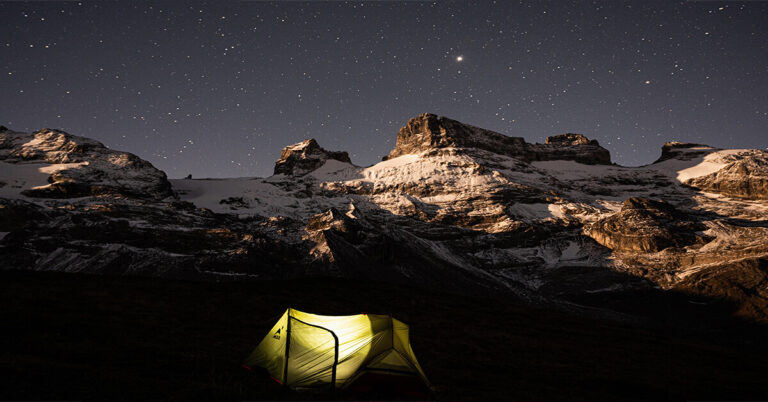Disclosure: I am compensated for purchases made through some links on this site. Click for details.
Insects make miserable camping buddies. Especially if they’re in your tent overnight. Do you have trouble sleeping when they’re buzzing around or know bugs could be crawling on you… trapped in your sleeping bag with you? I can’t!
Mosquitoes, ticks, flies, and others are not only annoying they carry disease. It’s best not to zip insects up in your tent with you when you can keep them out of your tent in the first place.
There are many effective ways to keep insects out of your tent including tent type, placement, preparation during camp setup, and insecticides like DEET, and natural repellents like citronella.
Camping is a wonderful experience that can be ruined by one pesky mosquito feeding on you overnight. Let’s look at how to keep your tent free of insects and even reduce their presence at your campsite.
Insects That Bug Campers
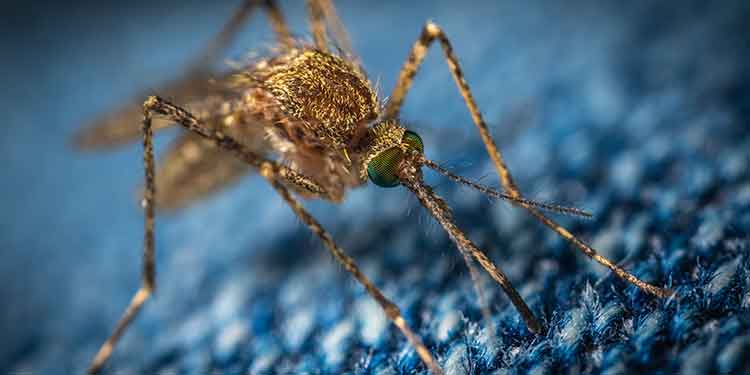
The outdoors is the natural habitat for insects. Knowing which insects you’ll encounter and how to discourage these pests will help reduce the chance of finding them in your tent.
Common campsite insects that can enter your tent:
- Mosquitoes
- Flies
- Ticks
- Spiders
- Ants
- Bees, wasps, and hornets
- Fleas
Tents and Tent Preparation to Keep Out Insects
Tents that Zip Closed
You aren’t going to keep insects out of your tent if you don’t have the right kind of tent. Whether you have chosen a 3-season or 4-season tent you want one with mesh over openings and a door that zips closed to create a bug-free shelter.
If you don’t like tents or want added protection from insects, consider mosquito netting products. Some are even treated with insect repellent like the Sea to Summit Nano Mosquito Pyramid Insect Shield Net Shelter.
Tent Inspection
Check your tent for holes, rips, tears, and poorly working zippers before you go camping. Insects will get in through the smallest of holes. It’s best to set up your tent in the backyard for inspection. When I lived in an apartment, I pushed the furniture out of the way and set my tent up in the den. If you find holes, patch them with a great repair product like Gear Aid Tenacious Tape.
If you’re having zipper problems, clean the zipper with soap and water before lubricating the zipper. I prefer less oily products and dislike graphite. Both have a tendency to make more of a mess than waxy alternatives like candle wax or beeswax lip balm.
Tent Setup to Prevent Insects
- Pitch your tent with the door and windows zipped closed.
- When putting up items in your tent like sleeping bags, unzip the tent door a little as possible and push them in as quickly as possible. You can get in arrange things later.
- Do not unroll your sleeping bag or unpack blowup mattresses or other before throwing them in your tent.
- Do not put food or water in your tent unless it is tightly sealed. Food draws insects and wild animals.
Tent Door Etiquette for Preventing Insects
- Never leave your tent door unzipped.
- Go in and out of your tent as little as possible.
- Whether entering or exiting, brush or knock-off insects that may be hanging out on the tent door.
- Do not use flashlights around your tent door and make sure any light inside the tent is off too. Insects are drawn to artificial light.
- Unzip the tent door as little as necessary to slip in and look for anything that may have followed you in.
Location Location Location: Where to Pitch a Tent to Avoid Insects
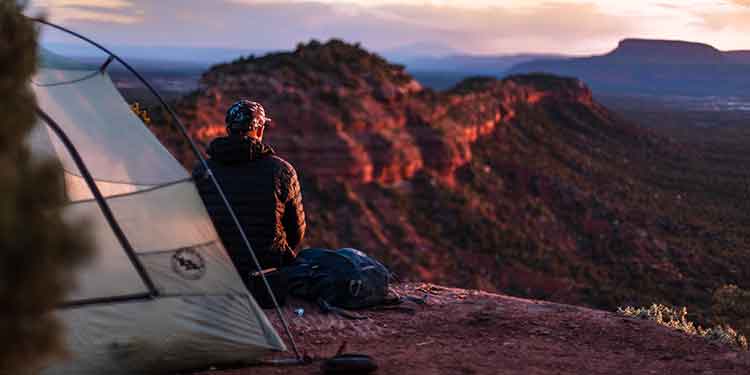
As they say in real estate, location is everything. That’s true when avoiding insects too. Choose where you camp wisely. The best way to avoid many insects is to locate away from places they inhabit.
Camp in a Breezy Area
Wind can carry insects away from your tent and campsite. If your tent is capable of handling windier conditions and your camping style suits as well, consider locating your tent where you’ll get a wind that makes it difficult for insects to hover around and land.
When using this technique, arrange the door of your tent parallel to the wind. Never face the door of your tent into the wind. It could turn your tent into a kite and it would also drive bugs in. Facing your tent door away from the wind creates a pocket that can shelter insects from the wind.
Avoid Camping Near Stagnant Water Sources
Stagnant water is a breeding ground for mosquitoes. Avoid pitching your tent near stagnant water.
Stagnant water sources to look for when pitching your tent:
- Lakes, ponds, and marshes
- Rivers and streams
- Puddles
- Ditches
- Drains
- Bathroom areas
- Campground water fountains
- Hollowed out trees
- Debris that can hold water
Avoid Camping Near Cedar Trees
The dense foliage of cedar trees provides a great home and breeding ground for insects especially mosquitos. Cedar groves also block winds that help sweep insects away from your tent.
Set up your tent away from cedar trees when possible.
Avoid Camping Near Dense Vegetation
Dense vegetation holds moisture and provides a great home and breeding ground for insects. These areas will also attract wild animals that feed on insects.
Keep Artificial Light Sources Away from Your Tent at Night
It’s no great secret. Many insects attracted to light. Artificial light is the main problem when camping. Your campfire won’t be much of an attraction. The smoke it produces is actually a deterrent.
Lanterns, Flashlights, & Headlamps
Many campers hang lanterns in or around their tents. As tempting as it may be, avoid the use of lanterns, flashlights, and headlamps in and around your tent. Any artificial light will draw insects and encourage them to hang around and enter when you unzip your tent.
If you have to use illumination, choose a light with red light night-vision. Insects are less attracted to red light.
Don’t Set Your Tent Up Beneath Lights
Take a look around your campground. If you’re camping in an area that has lights, locate your tent in an area away from these light sources.
Look Out for Bee, Wasp and Hornet Nests
Look around for signs of bee, wasp and hornet nests in trees, bushes, and shelters around your campsite. Avoid setting up your tent near one of these nests to reduce the possibility of being stung in your tent.
Pitch Tent Away From Anthills
Set up your tent away from anthills especially fire ant hills. Stinging ants in your tent will be miserable and hard to get out once they’ve found their way in.
Don’t drop crumbs in your sleeping bag or tent. When possible, keep all food and drink outside your tent and make sure to store all food away in well-sealed containers that won’t attract ants or other insects.
Pitch Tent Away From Shelters
Food is often dropped or left in and around picnic shelters and sleeping shelters which attracts insects, rodents, and other wild animals that carry fleas and ticks. Avoid locating your tent near areas where food is prepared or eaten.
Avoid Locating Too Close to Trash Bins
Campgrounds have trash bins that not only stink they draw insects like flies. You might even have raccoons or other wild animals with ticks and fleas exploring around trash bins.
Don’t pick a campsite close to trash bins or pitch your tent near one.
Avoid Camping or Hiking in Tick Infested Areas
Have you ever seen camp areas and trails with tick infestation warning signs? Some areas have more problems with ticks than others and it’s not uncommon for rangers to put up tick warning signs.
If you don’t want ticks wandering in your tent or hitching a ride into your tent, avoid camping and hiking where you see these warning signs. It doesn’t mean you won’t have an issue with ticks but it will lower your chances.
Tactics and Tools for Keeping Insects Out of Your Tent
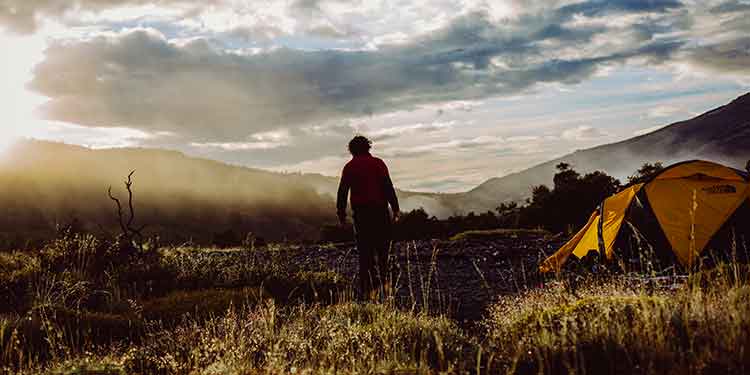
Location is your first step in keeping insects out of your tent while camping but there are a lot of other bug-prevention methods to apply. Both traditional and natural ways of repelling insects can be effective in keeping insects off you, your family, and pets, out of your campsite, and out of your tent.
Traditional Insect Repellents
If you aren’t familiar with traditional insect repellants, they are:
- Spray
- Lotion
- Wipes
- Bracelets
- Diffusers
- Coils
Tents Treated with Insect Repellent
There are tents and mosquito netting that are treated with insect repellent. If yours is not, you can spray the exterior of your tent with a traditional or natural insect repellent.
Protect Your Dog From Insects
If you’re camping with your dog, make sure it’s up to date on its flea and tick protection and heartworm prevention.
Natural Insect Repellents
Natural bug repellent alternatives are available although not considered to be as effective. They may, however, be healthier. You’ll have to weigh your health options when making your choice.
Essential Oil Insect Repellent
There are companies that sell natural insect repellents or you can make your own by mixing a tablespoon of Everclear, vodka or rubbing alcohol, half a cup of natural witch hazel and half a cup of distilled water with 10-30 drops of one or more of the following essential oils:
- Citronella
- Cedarwood
- Cajeput
- Juniper
- Rosewood
- Lemongrass
- Eucalyptus
- Tea tree
- Mint
- Peppermint
- Spearmint
- Catnip
- Basil
- Rosemary
- Sage
- Thyme
- Oregano
- Clove
- Lavender
- Geranium
- Rose geranium
- Orange
- Grapefruit
White vinegar and apple cider vinegar also repel insects and can be used in place of the water in the above mixture, though, the smell may overpower some people.
Herbs that Repel Insects
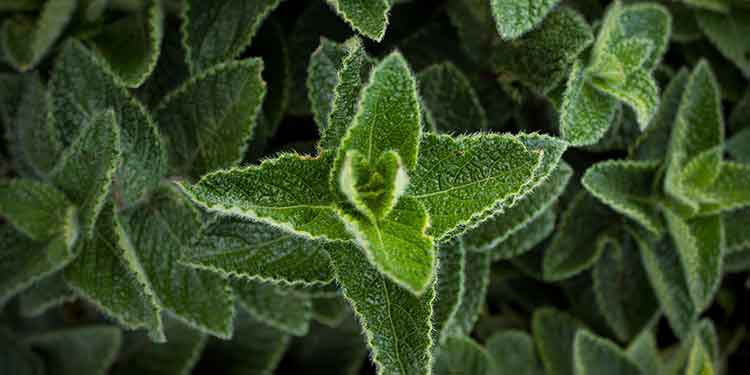
Not a fan of essential oils? Fresh and dried herbs that are used to make the above essential oils keep insects away too. Citronella, mints, rosemary, sage, and eucalyptus are some of the best.
- Burn them in your campfire
- Rub these fresh herbs on you
- Hang cuttings in your tent or around the door
- Keep the potted herb at your tent door
Foods that Repel Insects
Certain foods deter insects. Herbs of course also garlic, onions, and citrus.
- Keeping these foods around and cooking with them at the campsite will help repel insects.
- You could rub them on you. Yes, you’ll stink so if you are on a camping/hiking date, you might want to avoid this option.
- You can eat a lot and it will seep out your pores. Garlic capsules are a great way to get a lot of garlic in your system quickly.
Insecticides
Insecticides are popular for killing insects at campsites. But don’t spray them in or on your tent or around where you cook or eat. Pesticides are poisons and are harmful to humans and pets.
Smoke Out Insects
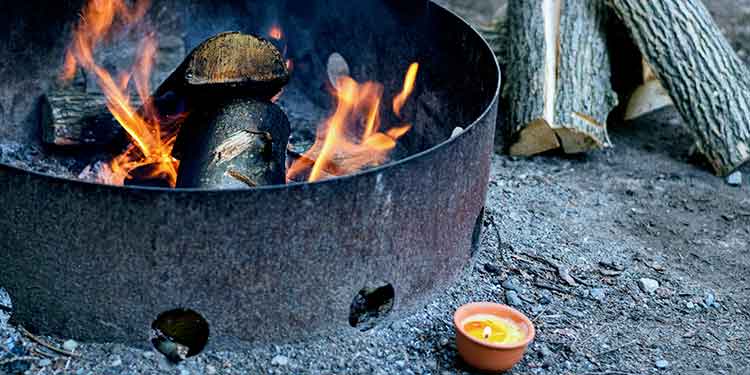
Insects don’t like smoke. The traditional campfire is a great way to deter insects from entering your campsite. Tiki torches, candles, and lanterns can produce smoke on a smaller scale. Though less effective than a campfire they can help. Use of citronella options when burning torches, candles, and lanterns can increase their effectiveness. Insect repellent coils also produce smoke.
Stay Hydrated
It is important to stay hydrated while camping. It’s essential for overall health but there’s an added benefit that’s sometimes overlooked…
Insects are attracted to certain chemical compounds on our skin, in sweat, and to the carbon dioxide (CO2) we exhale. By staying hydrated, you’re less likely to get overheated and produce as many of these chemicals.
Use Unscented Skin and Haircare Products
Using unscented hygiene products can lower your chances of attracting insects.
As mentioned in the above section on hydration, there are certain chemicals that our bodies excrete that attract insects. You want to stay clean. But there are scents added to soaps, shampoo, deodorant, hair care products, beard care products, and of course perfumes and colognes that can attract insects.
Keep a Clean Campsite
Garbage and food will attract insects. Keeping a clean campsite will reduce the chance of having insects in your tent.
- Keep cooking and eating areas clean.
- Do not leave food containers open.
- Wash dishes and utensils immediately after use and don’t store them in your tent.
- Whenever possible do not store food containers, empty or full, in your tent.
- Do not leave trash or food lying around. Insects will be after your crums too so keep it tidy.
- Don’t leave trash bags or trash bins open. Dispose of your trash in designated areas ASAP.
Keep Your Bathroom at a Distance
Whether you are using a campground bathroom or doing your business in the woods. Keep your tent at least 100 yards away from the bathroom. This goes for your dog’s bathroom area too. Insects and wild animals are attracted to urine and poop.
Check Yourself for Insects
Check yourself, fellow campers, and pets for insects before entering the tent. It’s not uncommon to find a hitchhiker.
Cooking and Tent Location
Insects are attracted to smells. Wildlife too. Pitch your tent upwind from your cooking area to keep food smells off and out of your tent.
Conclusion
Insects… Creeping, crawling, biting, stinging, buzzing, bloodsucking, feasting pests…
The thought of insects in your tent or worse sleeping bag can be a nightmare for many. No one wants insects in their tent.
Tent preparation, hygiene, and campground etiquette will help keep annoying insects like mosquitoes out of your tent.
Here’s to a great night’s sleep on your next adventure!
